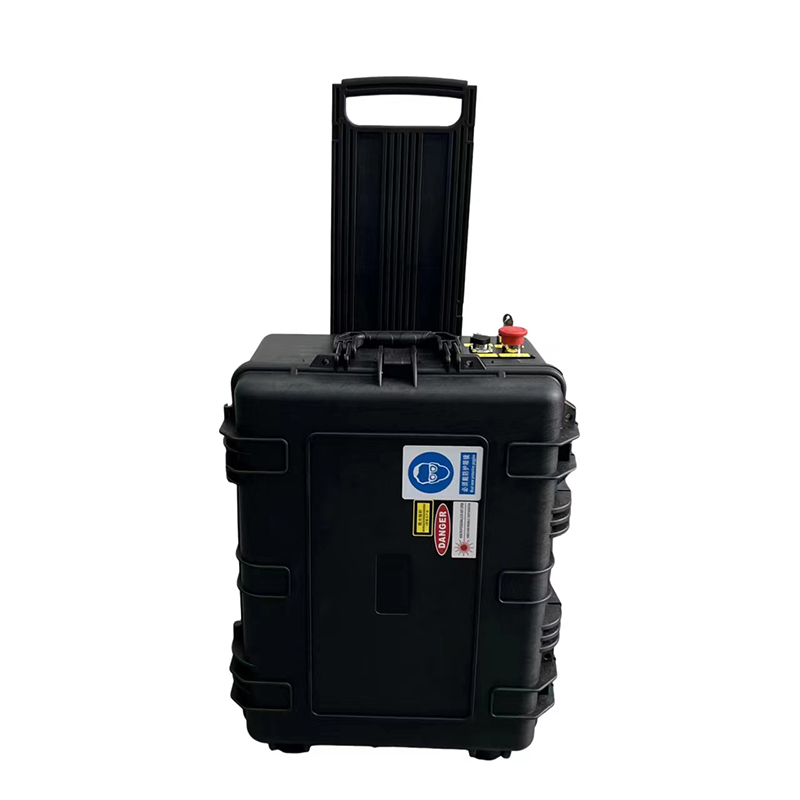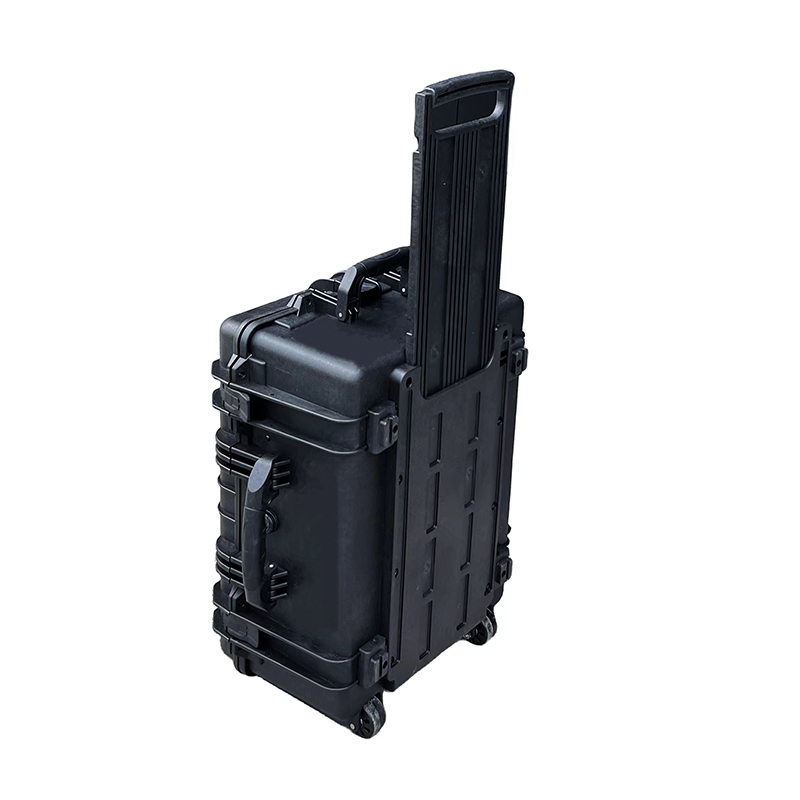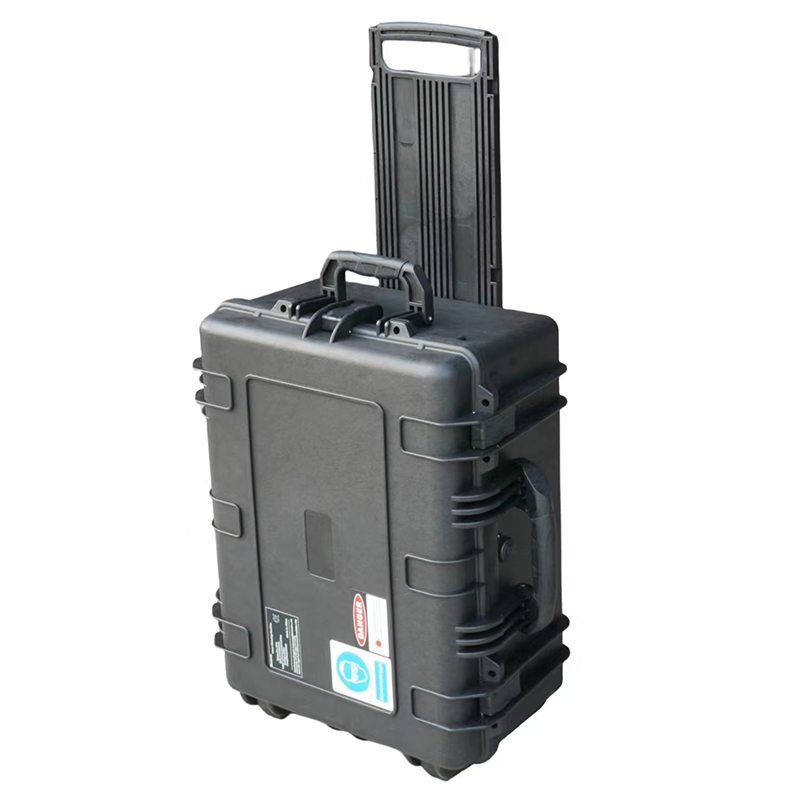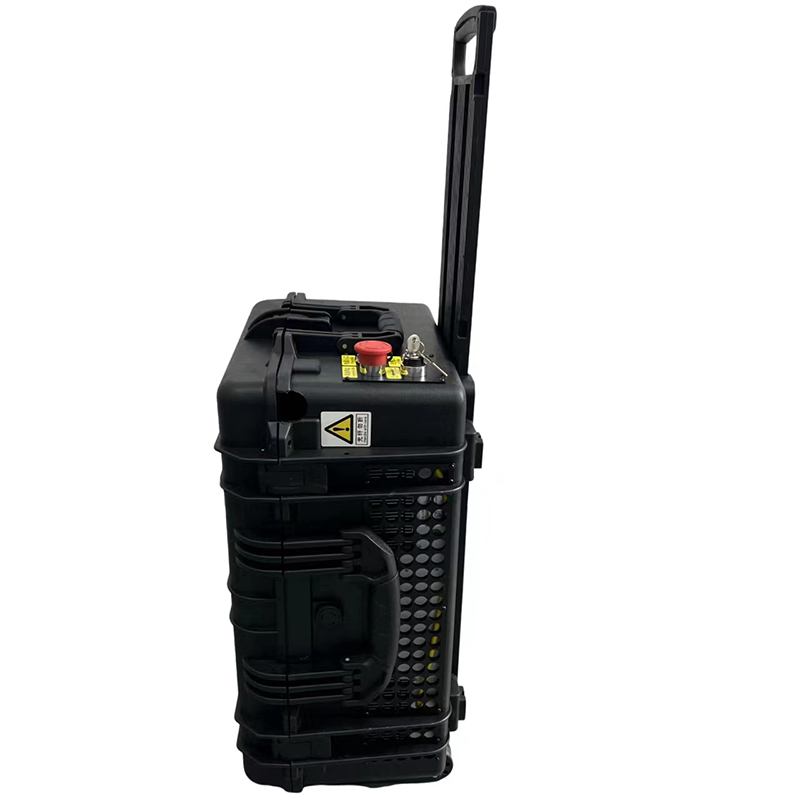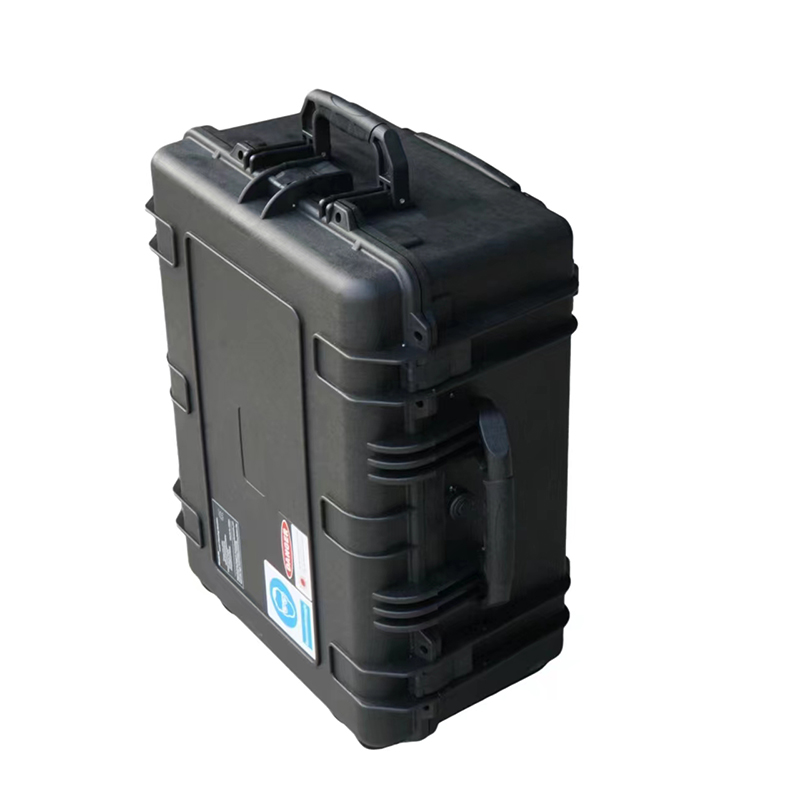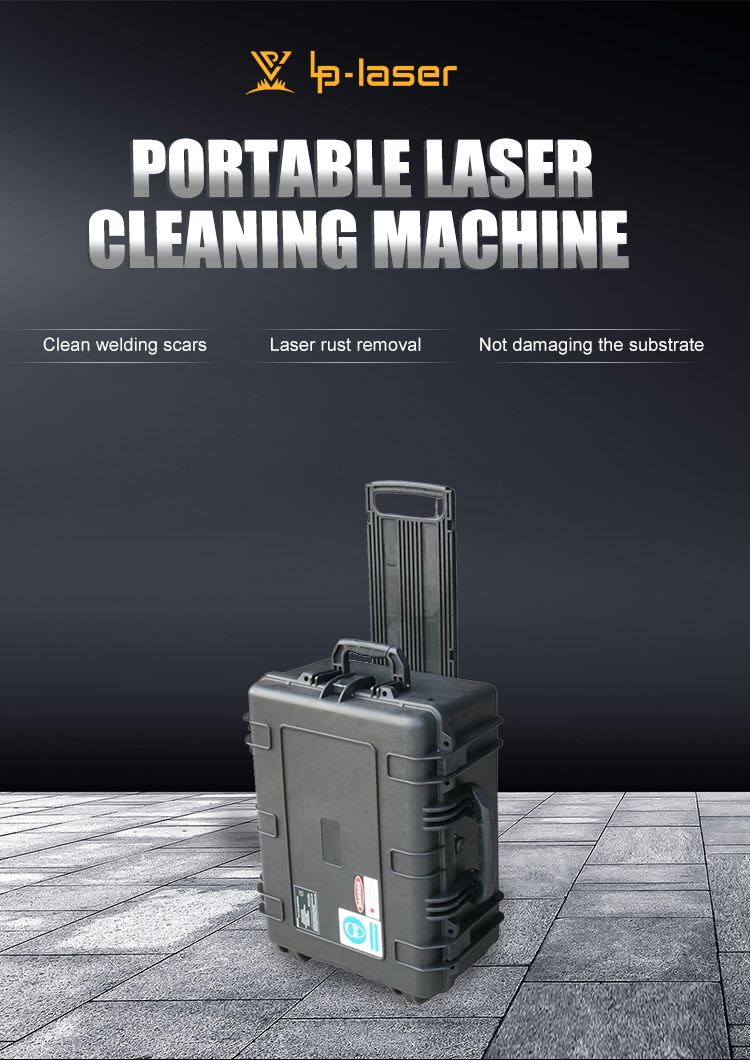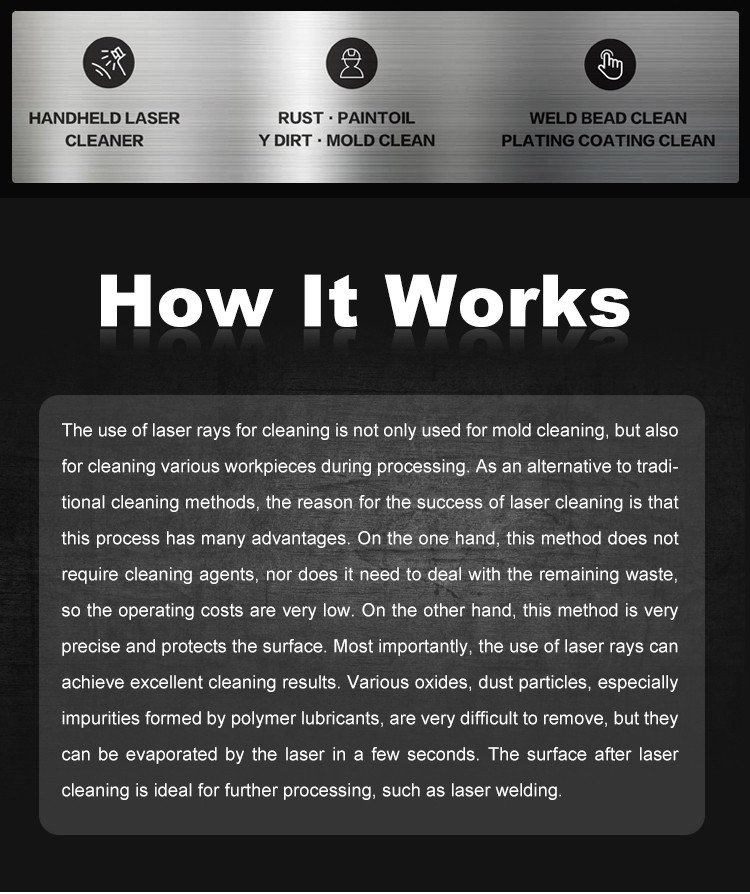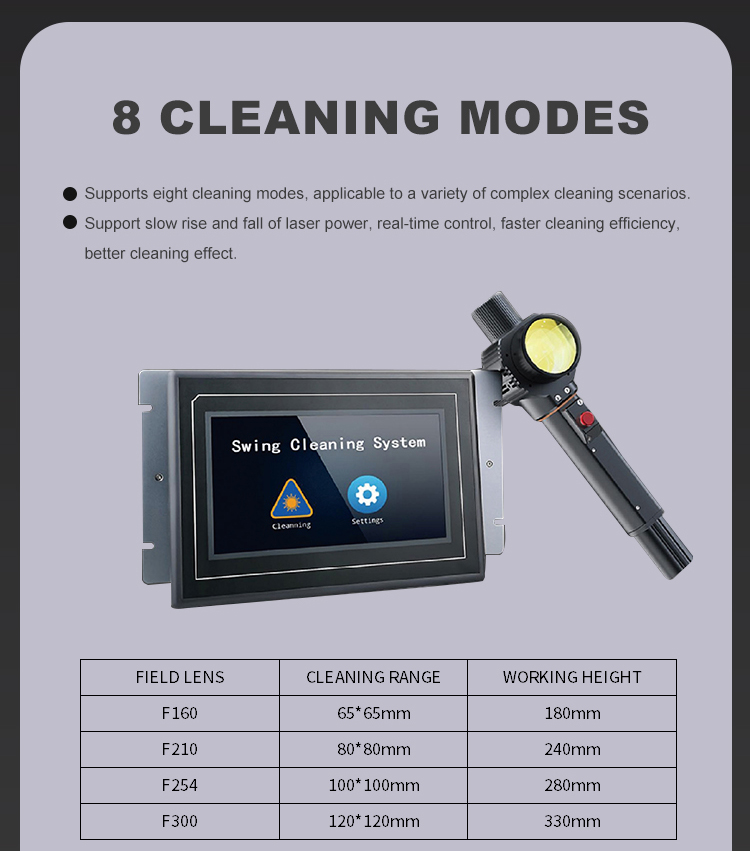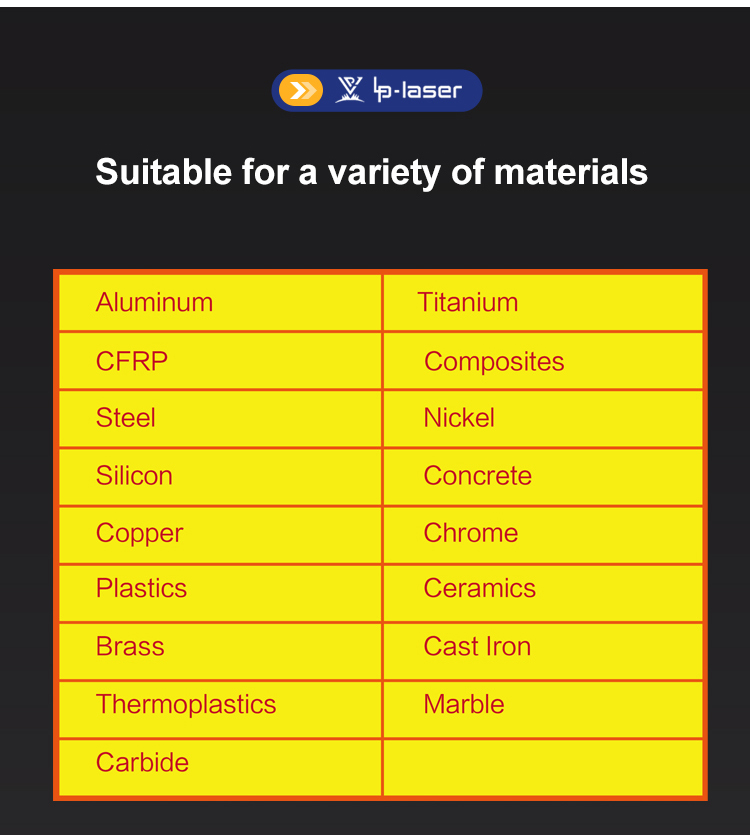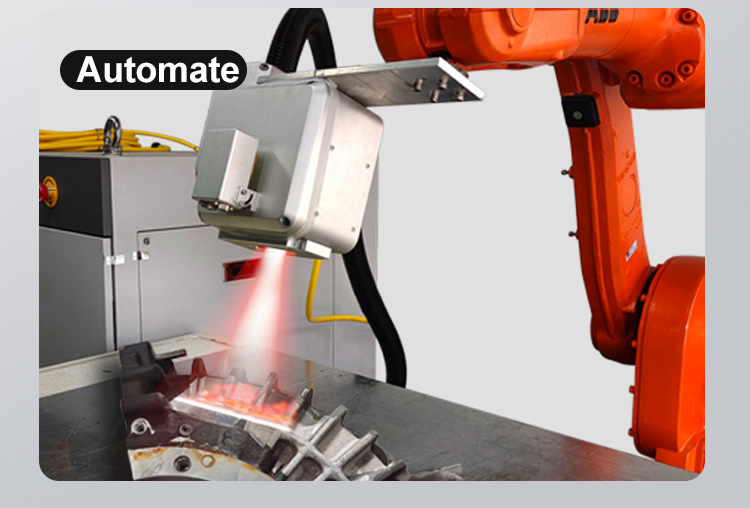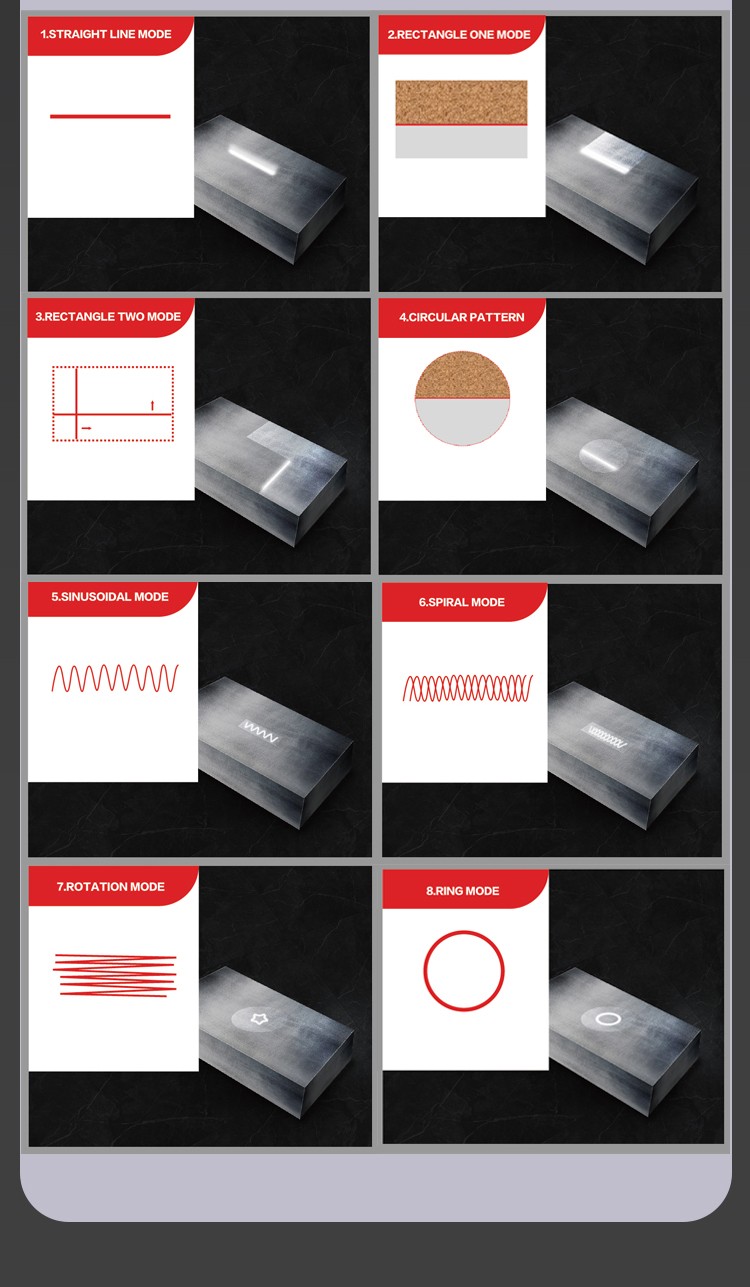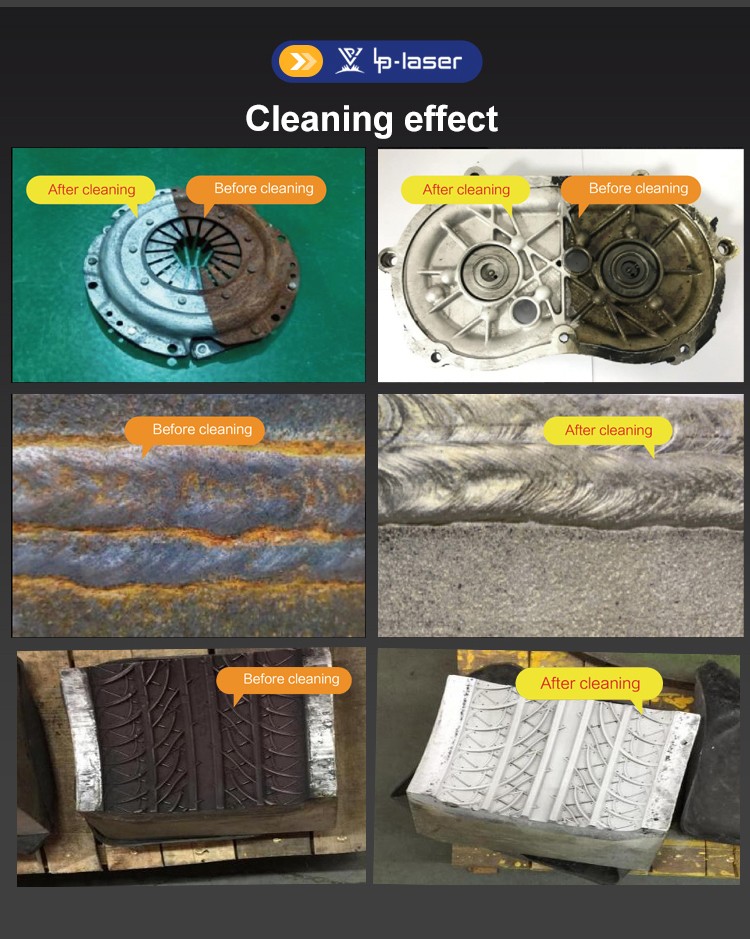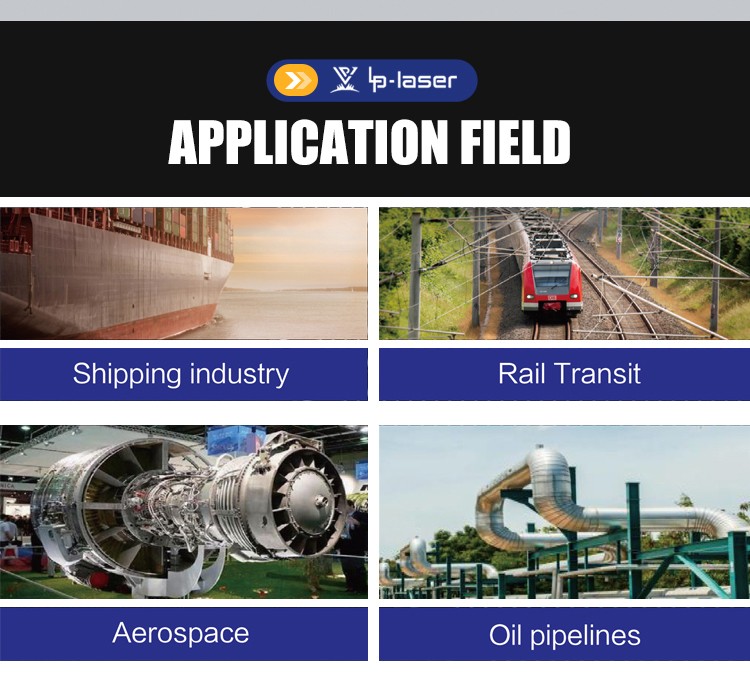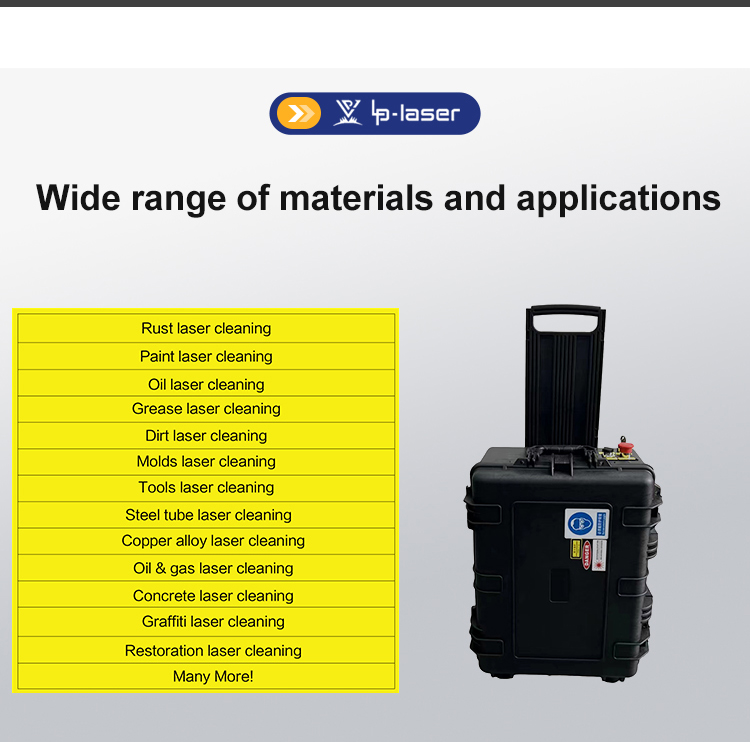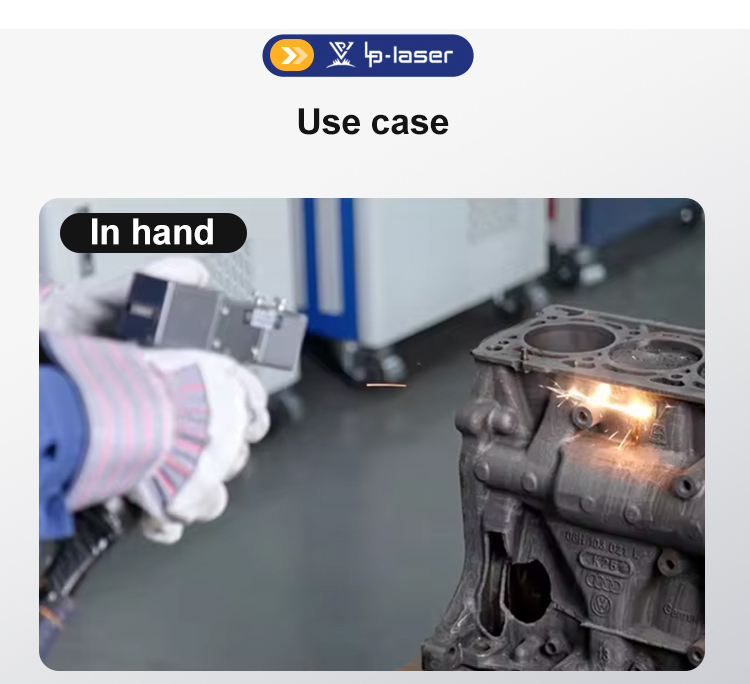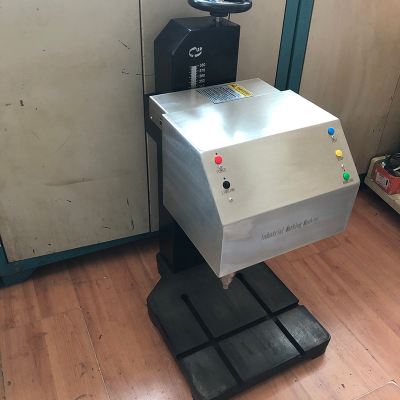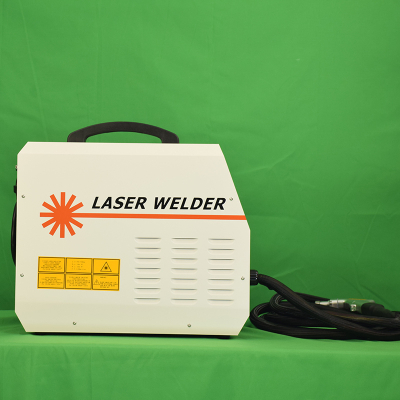Versatile Portable Laser Cleaning Machine
1. Environmentally Friendly
Portable laser cleaning machines are an eco - conscious choice. They don't require water, harsh chemicals, or abrasive materials, which are common in traditional cleaning methods. As a result, there's no wastewater to treat, no chemical residues to dispose of, and no dust pollution generated. The only by - products are small amounts of vaporized contaminants, which can be effectively managed with proper ventilation systems, making it a sustainable cleaning solution.
2. High Cleaning Efficiency
Equipped with powerful laser sources, these machines can quickly remove a wide range of contaminants such as rust, paint, oil, and oxide layers. The high - energy laser beam acts on the surface, rapidly heating and vaporizing the unwanted materials. Compared to manual or some traditional mechanical cleaning methods, portable laser cleaning machines can cover large areas in a short time, significantly reducing the cleaning time and increasing productivity, even for large - scale cleaning projects.
3. Cost - Effective in the Long Run
Although the initial investment might seem significant, portable laser cleaning machines offer long - term cost savings. There's no need to constantly purchase and replace consumables like cleaning chemicals or abrasive media. Their energy - efficient operation also helps cut down on utility bills. Additionally, by minimizing the risk of damaging workpieces during cleaning, they reduce the cost of rework and replacement, making them a cost - effective option over time.
Product introduction
Laser ray cleaning technology is not only widely used in the cleaning of molds, but also become a method of cleaning various workpieces in the processing process. As an innovator of traditional cleaning technology, the reason for its success lies in its unique and significant advantages.
First of all, laser cleaning completely gets rid of the need for chemical cleaning agents, but also eliminates the trouble of dealing with the waste after cleaning. This not only greatly reduces operating costs, but also greatly simplifies the cleaning process, making the whole process more environmentally friendly and efficient.
Second, the accuracy of laser cleaning technology is impressive. By precisely controlling the focus and energy distribution of the laser beam, the target area can be cleaned efficiently and precisely, while avoiding any damage to the surrounding area. This non-contact cleaning method effectively protects the integrity of the workpiece surface and ensures its processing quality.
Most importantly, the laser cleaning technology has shown excellent cleaning results. Even those hard-to-remove oxides, dust particles, and stubborn impurities formed by polymer lubricants can quickly evaporate under laser light, leaving no trace. This efficient cleaning capability makes laser cleaning technology ideal for handling complex, fine workpiece cleaning tasks.
In addition, the surface quality of the workpiece after laser cleaning is good, smooth and no residue, which provides ideal conditions for subsequent processing operations. For example, the surface of the workpiece after laser cleaning can be directly processed with high precision, such as laser welding, without additional processing or preparation steps, which greatly improves the processing efficiency and quality.
| Model: | HLC-P200W | HLC-P300W |
| Operational Voltage: | 220V±10%、50/60Hz Customizable: 110V, 50Hz AC | |
| Temperature: | 5℃~40℃ | |
| Humidity: | 30-85% Non-Condensing | |
| Power dissipation: | ≤1500W | ≤1500W |
| Power Output: | 200W | 300W |
| Laser Type: | Optical fiber | |
| Maximum Pulse Energy: | 2mJ | 2mJ/15mJ |
| Pulse Frequency Range: | 1-3000kHz(Gradient adjustable) | 1-3000kHz(Gradient adjustable) |
| Pulse Width: | 13-500ns tunable | 13-500ns tunable |
| Output Power Instability: | <5% | |
| Wavelength: | 1064 nm | |
| Head Cable Length: | 3 m | 5 m |
| Cooling: | Air cooling | |
| Focus Distance: | 210mm | 210mm |
| Scanning mode: | Dual axis; Nine scanning modes are supported | |
| Head Weight: | ≤0.9Kg | ≤1.25Kg |
| Size W x H x D: | About 617mm*469mm*291mm | |
| Box Dimensions | About 760mm*560mm*460mm | |
| Entire Unit Weight: | About 28Kg | About 29Kg |
| Packed weight: | About 28.5Kg | About 49Kg |
| Operation Mode: | Handheld/Automation | Handheld/Automation |
| Safety Class: | Level IV | Level IV |
Q1: What's the optimal scanning speed?
A: 100-500mm/s (slower for thick rust at 50mm/s; faster for light oxidation up to 1m/s).
Q2: How do I determine proper spot size?
A: Start with 0.2mm for precision or 5mm for large areas, targeting 5-20J/cm² power density.
Q3: What beam overlap percentage works best?
A: 30-50% overlap ensures complete coverage - below 30% causes streaking; above 50% reduces efficiency.
Q4: Why does my cleaning result vary daily?
A: Ambient humidity, surface temperature, and laser diode condition all affect consistency.
Q5: How does standoff distance impact results?
A: Maintain 100-300mm with appropriate focal length lenses (200-500mm for uneven surfaces).
